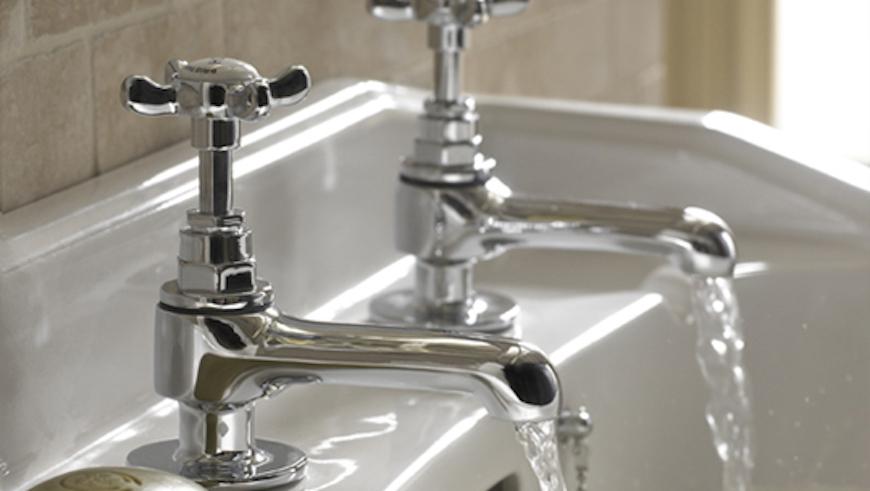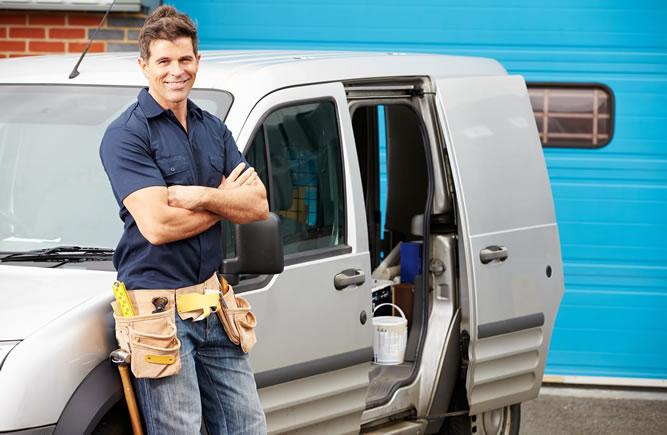Cost of New Bathroom Suite
Last updated 16th September, 2025
Want to know the costs of a new bathroom suite?
In this guide we take a deep delve into the world of bathroom suites and bathroom refurbishment. We break down the costs of a new bath, new shower, sinks and bathroom fitting. Plus much more!
Continue reading for more information!

How Much Does A New Bathroom Suite Cost?
This article is about the costs involved when replacing bathroom items such as baths, taps, sinks and toilets, rather than installing a brand new bathroom suite.
To keep things simple, assume a "like for like" replacement on all items, for example a standard bath with new taps will cost around £400 and won't require any additional pipes or plumbing costs. Plus, of course, there's no need for expensive tiling and in these instances you wouldn't be looking to replace a radiator or any other major work.
Installing a new bathroom suite can take a week or sometimes longer to complete, whereas standard replacements will be relatively straightforward and less time-consuming. Plus you won't have to go without water for longer than a couple of hours (or not at all if isolation valves are fitted for the bathroom).
All prices mentioned below include both the supply and labour to fit items unless specifically stated otherwise. The prices can change dramatically depending on the individual item being replaced, so for simplicity, mid-range costs from a standard DIY retail outlet have been used as a rough price guide.
New Bathroom Suite Costs
As an example, the average cost to supply and fit a bath with basic taps is around £400, albeit depending on the quality of the bathtub and excluding any potential tile work that may be required. If it's just new taps that are needed, then on their own taps can cost around £150.
Below are some estimated costs to replace a bath sink, taps and other bathroom items:
| Replace | Avg. Cost | Duration |
|---|---|---|
| Bath and Taps | £400 | 4-5 hours |
| Taps | £150 | 1-2 hours |
| Sink and Taps | £350 | 2-3 hours |
| Toilet | £350 | 2-3 hours |
| Bath, Sink & Taps | £700 | 5-7 hours |
| Electric Shower | £300 | 3-4 hours |
| Shower Cubicle | £450 | 4-6 hours |
| Heated Towel Rail | £250 | 2-3 hours |
| Bathroom Cabinet with Mirror | £150 | 1-2 hours |
| Extractor Fan | £200 | 2-3 hours |
Cost Breakdown
Individual costs for replacing a bath and new taps - Total Cost: £400
Materials
£200
Tradesmen
£160
Waste Removal
£40
Additional Cost Affecting Factors
There are huge variations from one plumber to the next when it comes to pricing these type of jobs. Plus location of your property will impact the labour costs, with many plumbers in London charging considerably more than those in the North of England and Scotland in order to reflect the higher cost of living.
It is also worth noting that some businesses have to charge VAT while those trading below the VAT threshold are not required to. This obviously has a large impact on the overall cost with VAT currently at 20%. Some traders work to stay below the VAT threshold to reduce their prices by only charging labour and having the customer buy the materials in advance.
As a general guide, the average plumber prices in the UK are between £40 and £60 per hour but can rise to as much as £100 to £130 per hour in London and the South East. However, for simple jobs such as replacing taps without any additional work, it may be worthwhile asking around for anyone that knows an experienced handyman that could do it cheaper.
While fitting a like-for-like bath or toilet doesn't directly warrant the need for tiling your bathroom, there is still a chance some may need replacing if they get accidentally damaged in the process.
If you're installing a new shower or cubicle, it's also a good opportunity to check the sealant as well as replace any grouting in the bathroom.
DIY Bathroom Suite Replacement vs Professional
While replacing the entire bathroom suite may be a job best left to the professionals, there are some individual items that can be installed by yourself if you're confident to do so.
Replacing Bath and Sink Taps
Aside from changing a lightbulb or putting up a hook for your towel, changing bath and sink taps are probably the easiest of DIY jobs for the bathroom.
DIY Pros
- ✔ Saves money - No need to pay £40 to £60 for a plumber, installing yourself cuts out any labour fees.
- ✔ Relatively simple - Providing the water is turned off, it's a fairly straightforward DIY job compared to other tasks.
- ✔ No waiting time - Quick and convenient, without the need to arrange an appointment.
DIY Cons
- ✖ Risk of a leak - A dripping tap can lead to a long-term issue, while poor sealing can cause serious water damage.
- ✖ Unforeseen issues - In the event of old or damaged pipework, a quick job can soon escalate and prove costly.
- ✖ No warranty - Should you make a mistake or require any repair work, you will have to cover any costs yourself.
Installing a Bath or Shower
Both of are these are similar in that any mistakes come at a cost, and as such hiring a professional is recommended to avoid any such issues.
DIY Pros
- ✔ Cost Savings - The big expenses when replacing like-for-like are going to be labour fees, these can be cut when doing it yourself.
- ✔ Project Management - Your bathroom doesn't need to be out of action and you can complete the job in your own timeframe.
- ✔ Customisation - You can add any fixtures and fittings as you go along without prior agreement.
DIY Cons
- ✖ High Risk - In the event any bathroom appliances aren't fitted correctly, there's a risk of major leaks and water damage.
- ✖ Safety Regulations - As well as potential structural damage, electric showers also need to meet UK Part P electrical regulations.
- ✖ Requires Plumbing Knowledge - Aside from installing a bath or shower being a big job, you will also need to understand basic plumbing.
Installing a Toilet
DIY Pros
- ✔ Money Saving - As with many DIY jobs, purchasing and installing yourself will save on any labour fees.
- ✔ Straightforward - The design of modern toilets and fittings are generally all fairly similar.
- ✔ Fast Turnaround - If you're confident in doing so, then DIY installation won't leave your toilet out of action.
DIY Cons
- ✖ Waste Disposal - Removing the old toilet can be a messy job, and you will have to dispose of the old toilet yourself.
- ✖ No room for error - Professionals can pressure test the system, confirm alignment and guarantee long-term reliability
- ✖ Heavy and awkward - Replacing a toilet DIY style requires two people capable of lifting and shifting.
Replacing Bathroom Tiles
Tiling a bathroom is a job many people tackle as a DIY project, which are often carried out to various levels of competency.
Pros
- ✔ Cost Saving - Especially when it comes to small areas such as splashbacks, that are usually a relatively quick job.
- ✔ Artistic Control - You don't have to rely on a professional to come up with the design, allowing you to add your own creativity.
- ✔ Flexibility - It may take you longer, but your bathroom suite won't be out of action while the work is being carried out.
Cons
- ✖ Time-intensive - Including the tiling, adhesive, grouting and cleaning up even a small area can take longer than expected.
- ✖ Water Damage - Even if it looks like you've done a good job, not applying sealant correctly may cause issues at a later date.
- ✖ Visual Mistakes - In high view areas, uneven tiles and other inconsistencies become highly noticeable.
Bathroom Suite Isolation Valves
With isolation valves in place a plumber could fit an entire new bathroom without turning the water supply off at the main stopcock. Isolation valves come in two basic designs, the cheapest and most common type uses a slotted screw to switch water on or off.
Higher quality isolation valves have handles which makes isolating the water much easier! If the plumbing in your property is old then you may find that most of the plumbing does not have isolating valves, so it is a good idea to fit them when having any other plumbing work carried out to make working on any appliance in the future that much easier and more convenient.
Will I Need Additional Work Carrying Out?
The main problem with having any work done in the bathroom is the wall and floor tiling, when replacing certain bathroom fixtures, even with "like for like" replacements of similar size, then unless you get an item virtually identical in size, you may be left with a gap in the tiling which looks horrendous if not fixed.
If your bathroom was tiled many years ago, it may not be possible to get the same tiles just to patch it, so a much larger area, if not the entire bathroom, will need to be retiled too. Wall/floor tiling rarely goes behind and under the bath, in most cases, the bath is installed first and then the wall is tiled and sealed to the top edge of the bath.
Removing a bath will almost always result in some tiling work being required. Typically quotes for new bathroom suite items will not include any tiling work at all.
FAQs
In addition, modern toilets have improved flushing and use much less water (you can even choose new toilets with dual flush valves that give you a choice of flush depending on the “type” of waste so you can choose how much water is required on each flush). So there are many good reasons to change the toilet, not just aesthetic reasons (which is normally the case with the bath/shower and sink).










